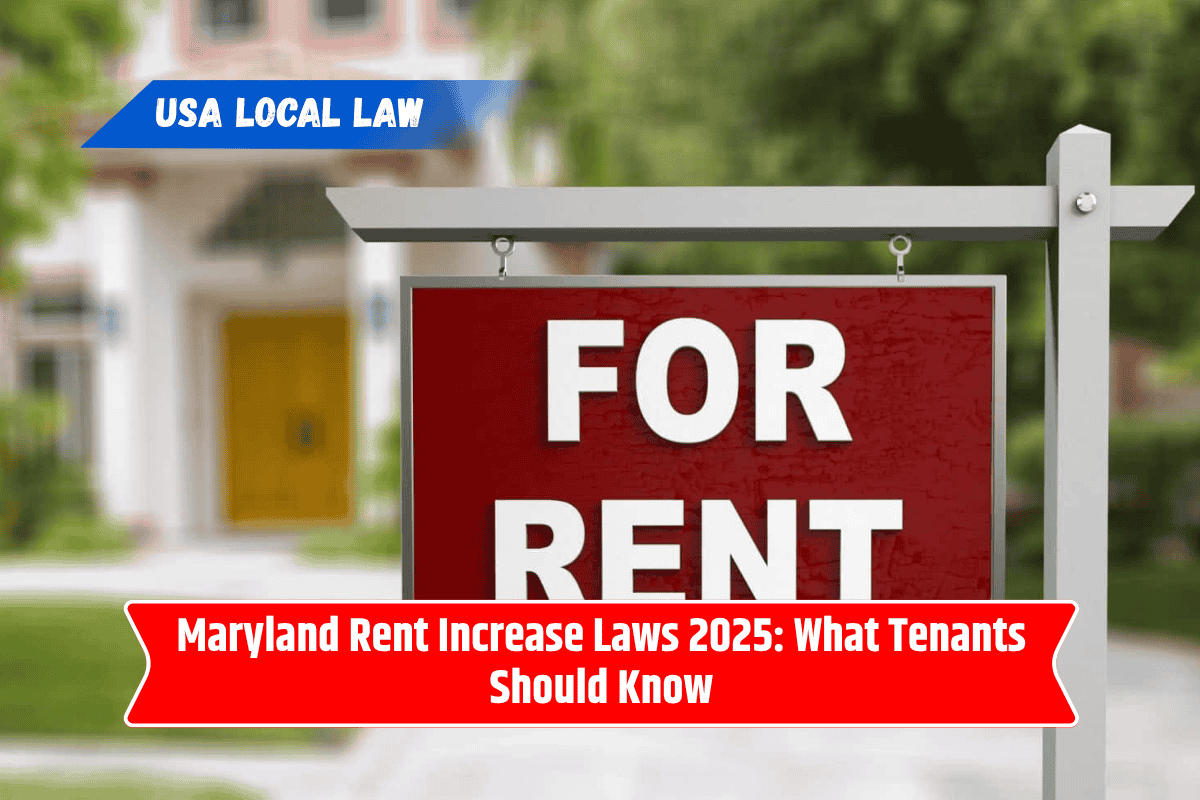In 2025, many tenants across Maryland are facing questions about rent increases, especially with rising living costs. Whether you live in Baltimore, Montgomery County, or any other part of the state, understanding your rights as a tenant is key.
This article breaks down Maryland’s rent increase laws in simple terms so you know what landlords can and can’t do—and how to protect yourself from unfair practices.
Is There a Limit on Rent Increases in Maryland?
Maryland does not have a statewide rent control law. This means, in most parts of the state, landlords can raise rent as much as they want—as long as they follow the proper rules.
However, some counties and cities (like Montgomery County and Takoma Park) have local rent control laws that limit how much the rent can go up each year.
So, the rules depend on where you live in Maryland. Always check your local laws to know your rights.
How Much Notice Must a Landlord Give?
Even if there’s no limit on how much the rent can increase, Maryland law requires landlords to give advance written notice before raising the rent:
For month-to-month leases, landlords must give at least 60 days’ written notice before the rent increase starts.
For yearly leases, the rent cannot be increased during the lease period. The landlord must wait until the lease ends and give notice if they want to raise rent for the next term.
Always make sure any notice is given in writing, either by mail, email (if allowed in your lease), or hand-delivered.
What About Local Rent Control Rules?
Some areas in Maryland do have rent caps or control laws that protect tenants from sharp increases:
Montgomery County:
As of 2025, Montgomery County has passed rent stabilization rules, limiting rent increases to a certain percentage tied to inflation. In 2025, the cap is 4% for most properties.
Takoma Park:
Takoma Park has one of the strongest rent control programs in Maryland. The allowed increase in 2025 is 2.6%, and landlords must apply for approval before raising the rent.
Other counties may not have rent caps, but they still require proper notice and lease agreements to be followed.
Can a Landlord Raise Rent During the Lease Term?
No. In Maryland, if you have a fixed-term lease (like 12 months), your landlord cannot raise the rent until the lease ends. They must wait for the renewal period and give proper notice about the new rent.
For month-to-month tenants, rent can be increased with a 60-day notice, but not mid-month.
What Can Tenants Do If Rent Is Raised Too Much?
If your rent is raised sharply or unfairly, you still have options:
Check local laws: You may be protected under local rent caps if you live in Montgomery County or Takoma Park.
Ask for an explanation: Sometimes landlords are willing to negotiate or explain the increase.
File a complaint: If you think the increase breaks local laws or wasn’t properly communicated, you can contact your county’s housing office or the Maryland Attorney General’s Consumer Protection Division.
Seek legal help: There are free legal aid groups in Maryland that can help renters, especially low-income tenants.
Tips for Tenants in 2025
Read your lease carefully to know your rights and renewal rules.
Know your local laws—Maryland doesn’t have a single rule for all cities.
Never ignore a rent increase notice. Respond early and keep written records.
Keep copies of all letters, emails, and messages from your landlord.
If in doubt, ask for help from a local tenant advocacy group or legal aid.
Rent increase laws in Maryland vary by location, but all tenants are protected by basic rules. In most areas, landlords must give proper notice and cannot raise rent during a lease term. In places like Montgomery County and Takoma Park, there are limits to how much rent can go up.
By understanding the 2025 laws and your local protections, you can stay informed and avoid surprises. If you ever feel unsure about your rights, reach out to local housing services or tenant support organizations to get help.
